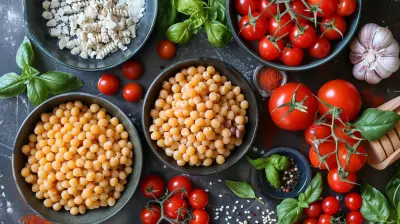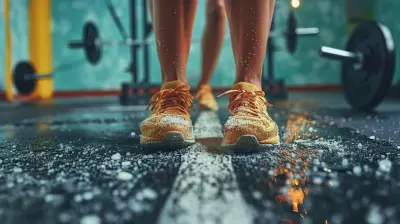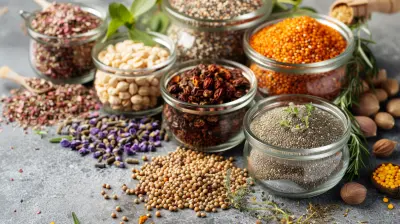Building Muscle on a Vegan Diet: What's the Secret?
24 May 2025
Looking to build muscle on a vegan diet? You’re not alone! Many people assume that without animal products, muscle growth is slow or even impossible. But that couldn’t be further from the truth. With the right approach, you can pack on muscle just as effectively as any meat-eater. So, what’s the secret? Let’s dive in! 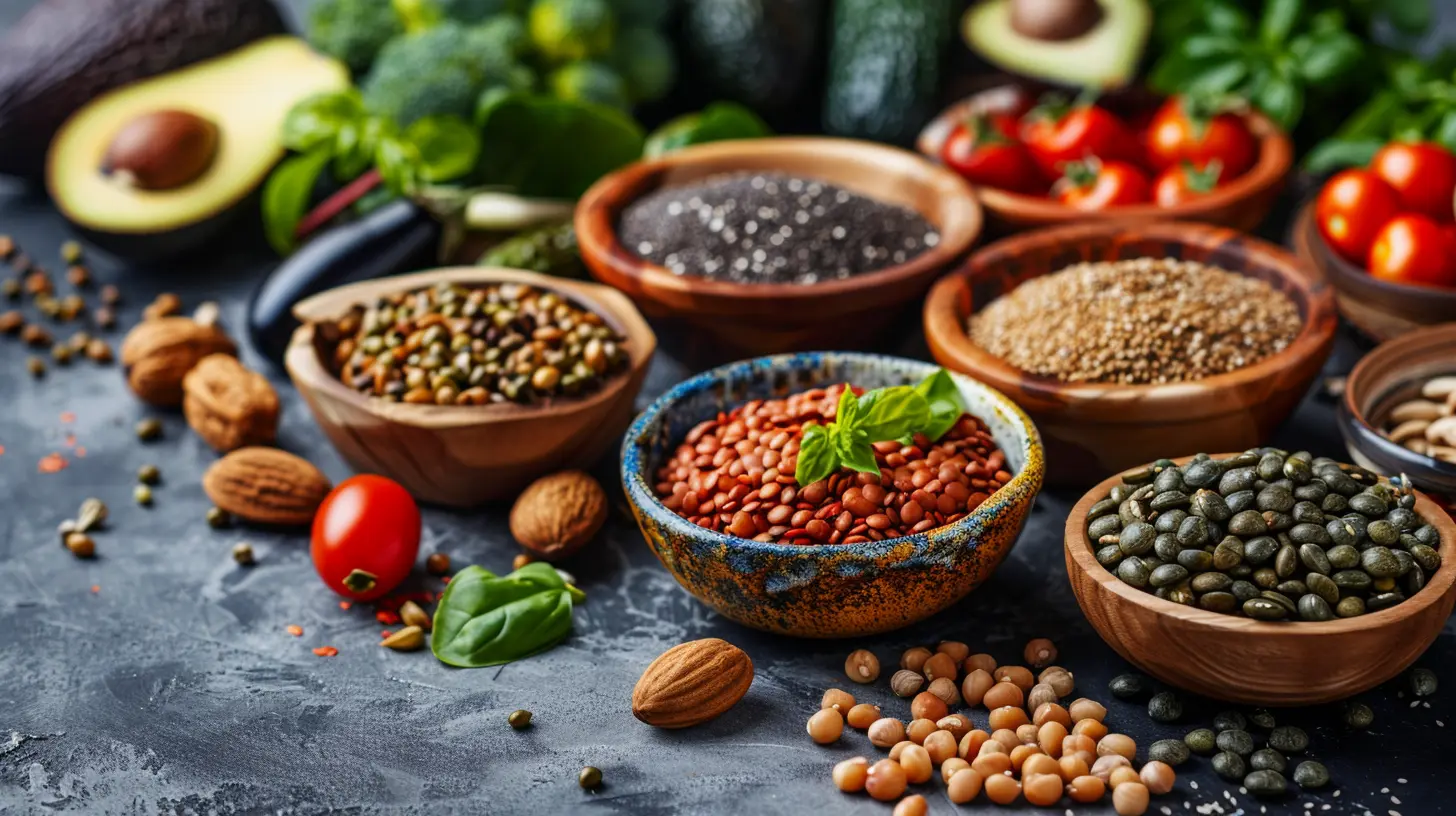
Can You Build Muscle on a Vegan Diet? Absolutely!
First things first—yes, you can build muscle on a vegan diet. Your body doesn’t care where protein comes from, as long as it gets enough of it. The key to muscle growth is a combination of three things:1. Adequate protein intake
2. Progressive resistance training
3. Sufficient caloric intake
If you master these three factors, you’ll gain muscle regardless of whether your protein comes from plants or meat. 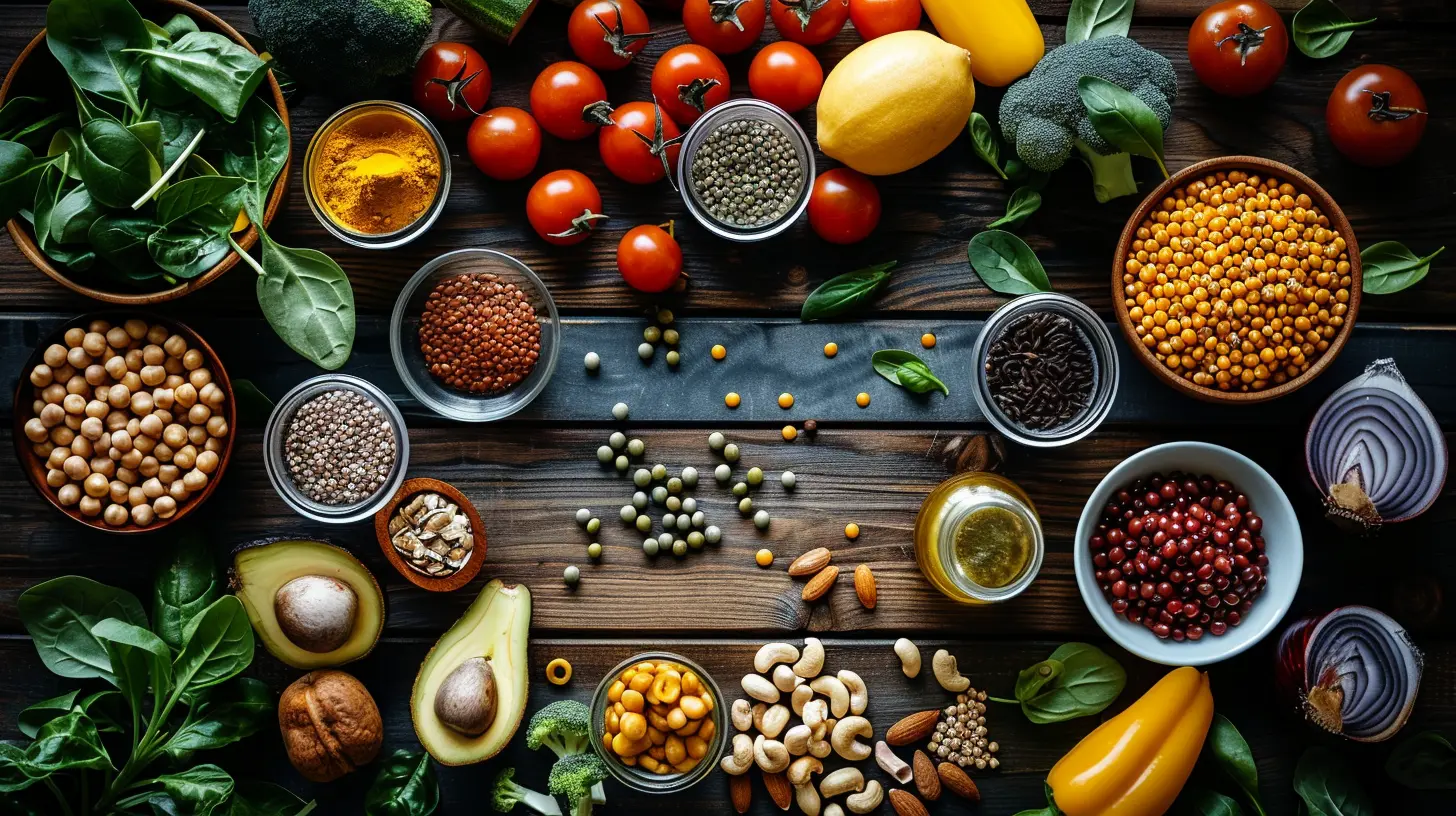
Protein: The Building Block of Muscle
How Much Protein Do You Need?
For muscle growth, aim for around 1.6 to 2.2 grams of protein per kilogram of body weight (or about 0.7 to 1 gram per pound). This range ensures your muscles get enough raw material to repair and grow.Best Vegan Protein Sources
There’s a myth that plant-based protein is insufficient for muscle building. Not true! Here are some protein-packed vegan options:- Legumes – Lentils, chickpeas, and black beans
- Tofu & Tempeh – Great sources of complete protein
- Seitan – A wheat-based protein with a meat-like texture
- Quinoa – A complete protein containing all nine essential amino acids
- Hemp Seeds & Chia Seeds – Small but mighty in protein
- Nutritional Yeast – Adds a cheesy flavor to meals with a protein boost
- Plant-Based Protein Powders – Pea, brown rice, soy, or hemp protein shakes work wonders
Combining Proteins for Completeness
Not all plant proteins contain the full spectrum of essential amino acids. The trick? Mix and match your protein sources. For example, pair beans with rice, or hummus with whole-wheat pita. Variety ensures you get all the amino acids your body needs.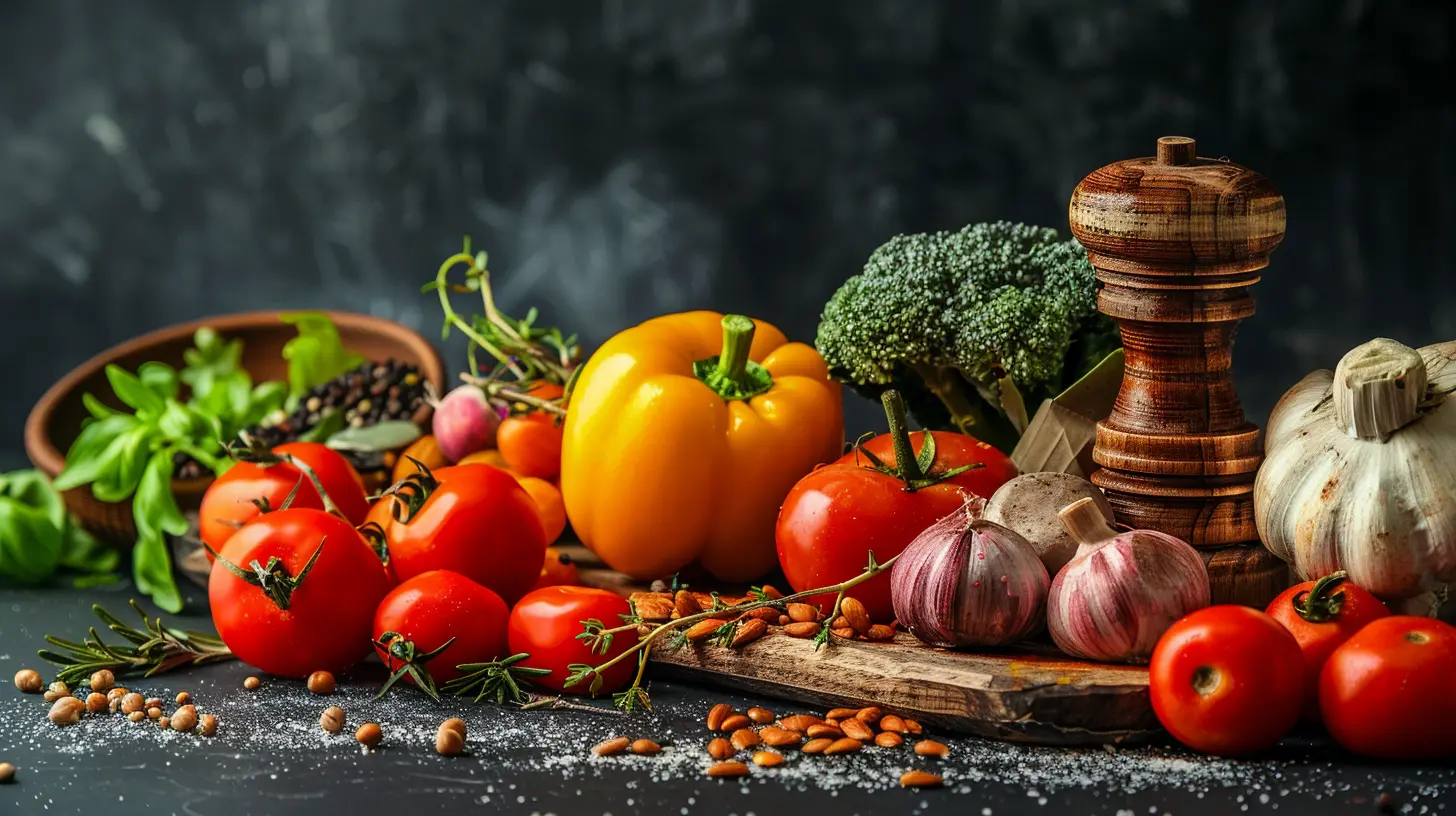
Calories: Fueling Your Gains
If you're not eating enough, your body won’t have the energy to build muscle, no matter how hard you train. Since plant-based foods tend to be lower in calories, you’ll need to be mindful of your total intake.How to Eat Enough Calories on a Vegan Diet
- Eat calorie-dense foods – Nuts, seeds, avocados, and coconut products add extra calories without requiring large portions.- Increase portion sizes – Double up on rice, lentils, and starchy vegetables.
- Drink your calories – Smoothies with nut butter, bananas, and plant protein are a great way to up your intake.
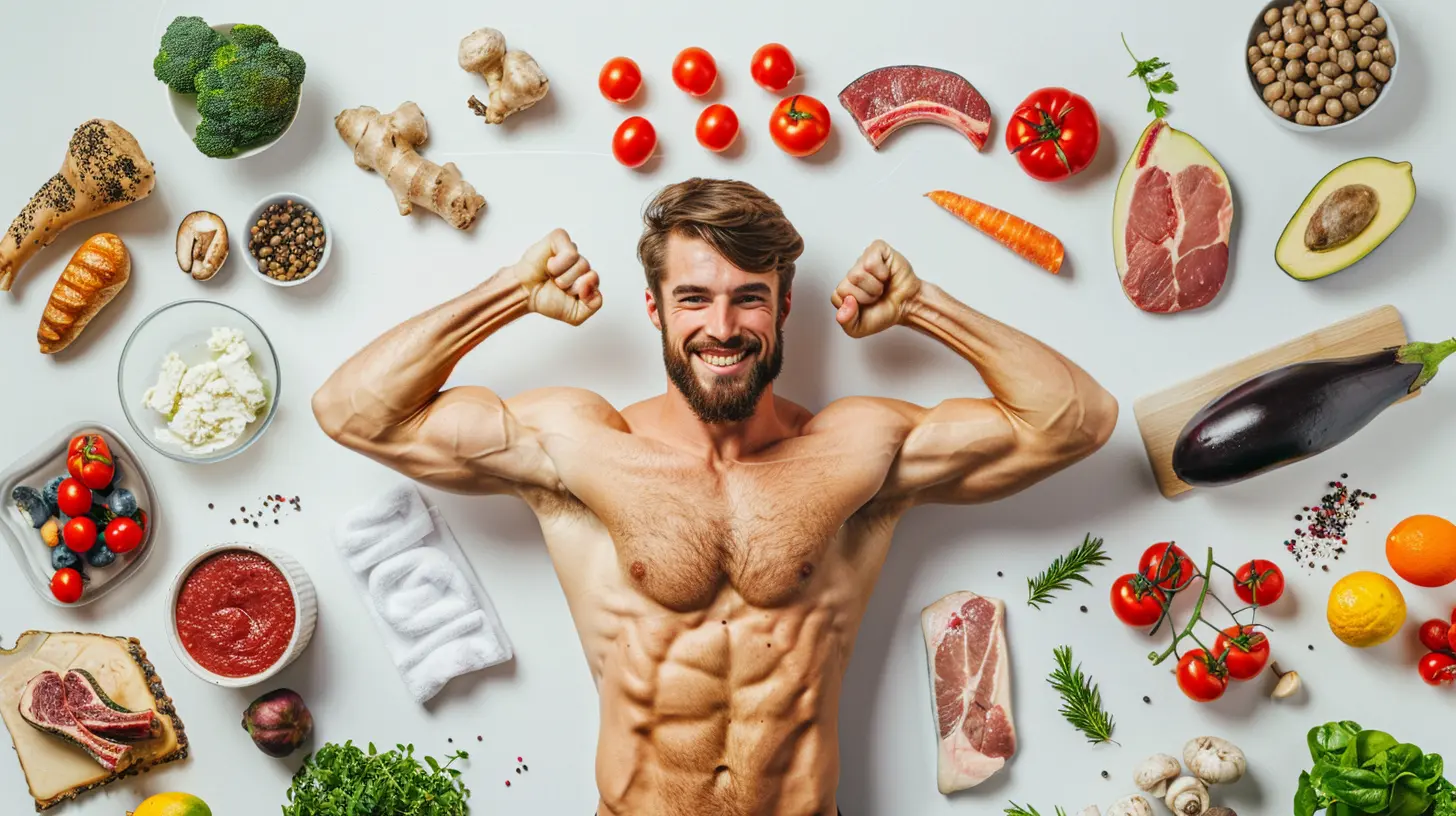
Training: Lifting Heavy and Smart
Muscle growth requires progressive overload, meaning you need to challenge your muscles by gradually increasing weights or reps over time.Best Workouts for Muscle Gain
A well-structured program should include:- Compound Movements – Focus on exercises like squats, deadlifts, bench presses, and pull-ups. These target multiple muscle groups and encourage faster growth.
- Consistency – Train at least 3-5 times per week with a focus on strength progression.
- Rest & Recovery – Muscles grow when they recover, so don’t skimp on sleep or rest days.
Micronutrients Matter: Don't Overlook These
Building muscle isn’t just about protein and calories—you also need essential vitamins and minerals to keep your body functioning at its best.Key Nutrients for Vegan Muscle Growth
- Vitamin B12 – Found in fortified foods or supplements (since it’s mainly in animal products)- Iron – Get it from lentils, spinach, and pumpkin seeds (pair with vitamin C-rich foods for better absorption)
- Omega-3s – Walnuts, flaxseeds, and chia seeds support joint health and recovery
- Zinc – Crucial for recovery, found in legumes, seeds, and whole grains
- Calcium – Strengthens bones, found in tofu, almonds, and fortified plant milks
Timing Your Nutrition: When to Eat for Maximum Gains
You’ve probably heard about nutrient timing—the idea that when you eat matters for muscle growth. While it’s not everything, it can certainly help.Pre-Workout Nutrition
Eat a meal or snack 1-3 hours before training, including:- A balanced mix of protein and complex carbs (e.g., oatmeal with almond butter or a protein smoothie)
- Moderate fat to avoid sluggish digestion
Post-Workout Recovery
After your workout, eat within an hour to replenish glycogen and kickstart muscle repair. A solid post-workout meal includes:- Protein – Tofu, tempeh, or a vegan protein shake
- Carbs – Sweet potatoes, quinoa, or whole grains
Supplements: Are They Necessary?
While whole foods should form the foundation of your diet, supplements can help fill in the gaps.Top Vegan Supplements for Muscle Building
- Vegan Protein Powder – Convenient and effective for hitting protein targets- Creatine – One of the most researched supplements for increasing strength and muscle mass
- Branched-Chain Amino Acids (BCAAs) – Can support recovery, though not essential if protein intake is adequate
- Vitamin B12 – A must for vegans since it’s not found in plant foods
- DHA/EPA (Omega-3s from Algae Oil) – Supports brain health and reduces inflammation
Debunking Common Vegan Muscle-Building Myths
Let’s tackle a few myths that might be holding you back.“Plant Protein Isn’t Complete”
Many plants contain all nine essential amino acids; plus, as long as you eat a variety of protein sources, you’ll get everything your body needs.“Vegans Can’t Get Enough Calories”
With calorie-dense foods like nuts, seeds, and whole grains, hitting a surplus is totally doable.“You Need Dairy for Strong Bones”
Plenty of plant-based foods contain calcium, and weightlifting itself strengthens bones!Final Thoughts: The Secret to Vegan Muscle Growth
So, what’s the secret to building muscle on a vegan diet? It’s no secret at all! Eat enough calories, prioritize plant-based protein, train hard, and recover well. There’s no magic ingredient—just smart nutrition, consistency, and effort. Vegans can build muscle just as effectively as anyone else. So go ahead, hit the gym, fuel your body, and watch those gains grow!all images in this post were generated using AI tools
Category:
Vegan DietAuthor:

Tiffany Foster
Discussion
rate this article
3 comments
Skylar Maddox
Embrace the power of plants! Building muscle on a vegan diet is not only possible but can lead to incredible strength and vitality. With the right balance of protein-rich foods, dedication, and a positive mindset, you can achieve your fitness goals while nourishing your body. Keep pushing forward; you’ve got this!
May 31, 2025 at 2:59 AM

Tiffany Foster
Absolutely! A plant-based diet can provide all the nutrients needed for muscle growth. With careful planning and dedication, achieving your fitness goals is entirely possible. Let's keep fueling our bodies with the power of plants!
Hannah Hall
Great insights! As someone transitioning to a vegan diet, I appreciate the guidance on building muscle without compromising my values. Excited to try these tips!
May 25, 2025 at 2:32 PM

Tiffany Foster
Thank you! I'm glad you found the tips helpful. Enjoy your vegan journey and happy muscle building!
Blaze Hayes
Great insights on building muscle on a vegan diet! Your tips for protein sources and meal planning are especially helpful for those looking to optimize their nutrition.
May 24, 2025 at 2:39 AM

Tiffany Foster
Thank you! I'm glad you found the tips helpful for optimizing nutrition on a vegan diet. Happy muscle building!
